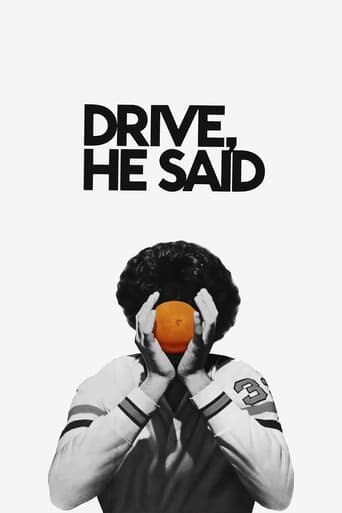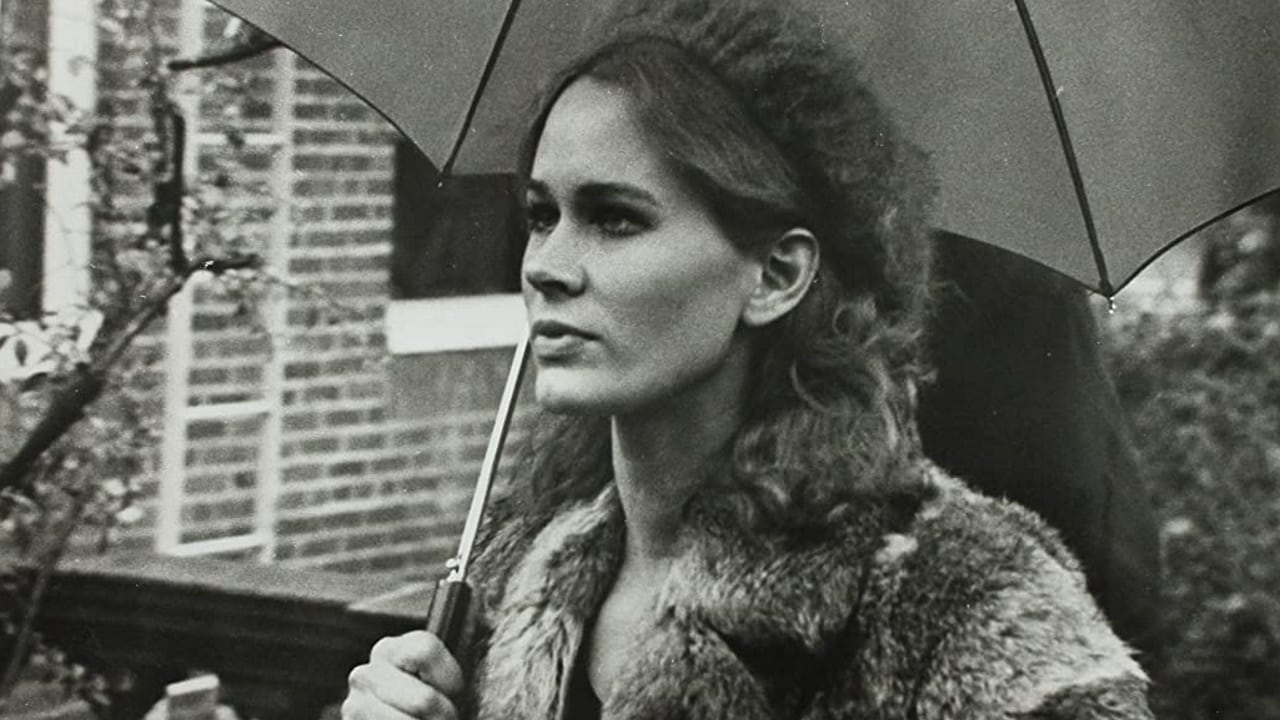Bob Taylor
(...) shall we &/ why not, buy a goddam big car/ drive he sd, for/ Christ's sake, look/ out where yr going. (I Know A Man by Robert Creeley). This poem is recited at the beginning of the film; I guess Nicholson was trying for some cultural reference that escaped me. The times were rough on those who sought meaning in the arts; there were too many filmmakers, painters, writers who were more interested in reshaping their consciousness than communicating with the world.I give this 4/10 because of Karen Black, because of the basketball sequences that are quite well shot, because Black and Tepper have an entertaining argument in the supermarket. The rest of the movie doesn't interest me in any way. It will go into the bargain bin of film history along with Head, Alice's Restaurant, The Strawberry Statement, Zabriskie Point and many more once lauded, now forgotten efforts.
lbeach104
Good luck finding this film to even watch - it's not yet released on tape or DVD. I saw on release in the early '70's, was lucky enough to catch it via American Cinematheque's preservation efforts, and it still has some tangible moments that stayed with me for thirty years.No reason to repeat rwint's accurate comments here. As a come-out Director soon after the soaring success of Five Easy Pieces, Jack N has been said to have managed the low budget effort as best as possible, and it certainly shows in the wandering and meandering that could have used some re-cutting. But it's also a memorable icon for it's time: the all very intense clashes of late 60's college sports, student movements, sexual revolution, and more. Why see this film? It was probably a ground breaker in some scenes: the frisky male bonding in the after-game showers; Karen Black's scene with Tepper in the car will catch you a little off guard - but it's the first use of a word I hadn't witnessed in film before; and the casual and unexpected use of nudity overall. There are probably others I'm omitting.Look for a nice surprise of a young Cindy Williams in one of her first films; a thin David Ogend Stiers; Mike Warren fresh out of his powder-blue UCLA uniform and readying for a dark-blue TV uniform; Robert Towne - Actor; and a whole lot of folks simply playing themselves.Now: any connection between Harry Gittes last name, Robert Towne, and a certain character in Chinatown and the Two Jakes?It gets a "7" based on Karen Black. You'll see why.
MisterWhiplash
As Jack Nicholson's directorial debut, Drive, He Said displays at the least that he is a gifted director of actors. Even when the story might seem to lose its way to the audience (and to a modern audience - if they can find it, which pops up now and again on eBay - it might seem more free formed than they think), the film contains vivid, interesting characterizations. The film tells of two college kids: the protagonist is Hector (William Tepper, in what borders on a break-out performance), a star of the Leopards, the college basketball team he plays on. While he has to deal with a coach (Bruce Dern) who puts on the pressure to stay focused, and a on and off girlfriend (Karen Black) with her own emotional problems, there's Gabriel (Michael Margotta), the other kid. Gabriel, it seems, is just a little more than freaked out by the possibility to be drafted, and so in his own radical mind-state he does what he can to keep out. But as Hector tries to find the balance between his oncoming fame and those he loves, Gabriel is going over the threshold of sanity.Nicholson, on the technical side of things, displays a fascinating editing style that keeps things on edge during the basketball scenes, and implements darkness in many other scenes with a documentary-feel throughout. And from Tepper, Black, and even Robert Towne (writer of Chinatown, Last Detail, and Mission: Impossible among others, who rarely acts) he garners some credible acting work. Though in Tepper there is a tendency to downplay his emotions. In some scenes, for example, when he could act brilliantly sarcastic, he doesn't play it for what it's worth. From Margotta, on the other hand, there is a vibrant, twisted force in his performance, and as he descends it's frightening, but perhaps understandable from the times (and what a climax). Dern steals most of his scenes, by the way, in a performance that should have garnered him an Oscar nomination. Every line of his dialog is appropriate, true, and it's never hammed up like in recent coach movie performances. But what drags down the film is that elements involving the characters aren't explained to the degree one might wish more. The film was based on a novel by Jeremy Larner, who co-wrote the script with Nicholson, and I was expecting that the film to be longer than it was. It's a slim volume with a lot of information, about the times, about the sport, about the underlying feelings that were with those of the younger generation. Nicholson presents us with these characters and situations, and rarely are they shown to what's motivating them (the anti-war protesters not included, their part's understandable enough). Gabriel is perturbed by what's going on in Vietnam, but what else is there? Hector, too, is a guy who has apprehensions about being drafted for the NBA, and he still loves to play, but what's holding him back? This whole atmosphere is intriguing, how the late 60's college/basketball experience was, but that intriguing quality, which does lead to some unconventionality, is kept at a point where it can't go too further. Overall, the effect of the film as a whole is bittersweet, and somewhat memorable for its good points, and not for it's low ones. And, for sure, you can tell who's behind the lens every step of the way. B+
PR-7
Some movies are repellent but still fascinating (Pulp Fiction); others are simply boring. This movie has an almost unique feature of being both utterly repellent and totally boring. By the end I didn't care about any of the characters, I just wanted all of them dead so I could get out of the theatre.


 AD
AD



